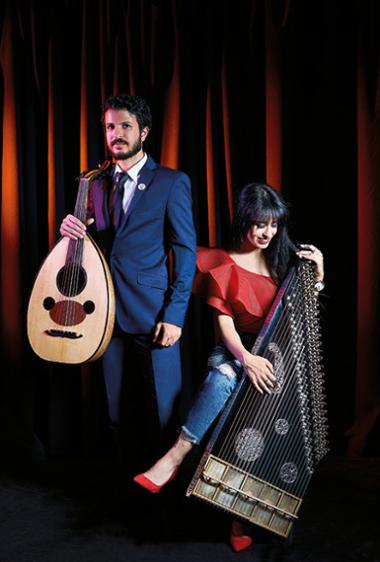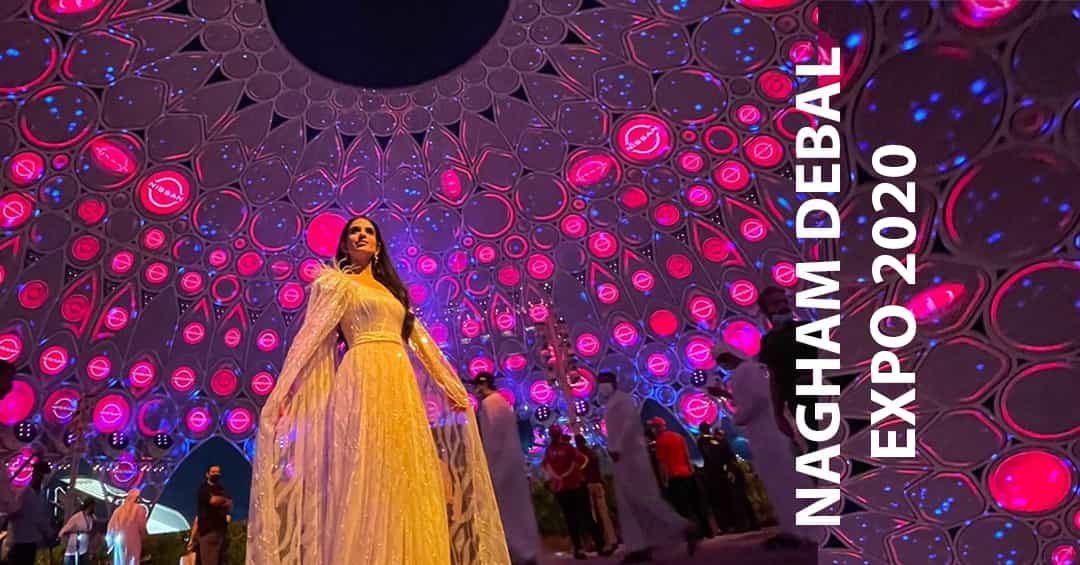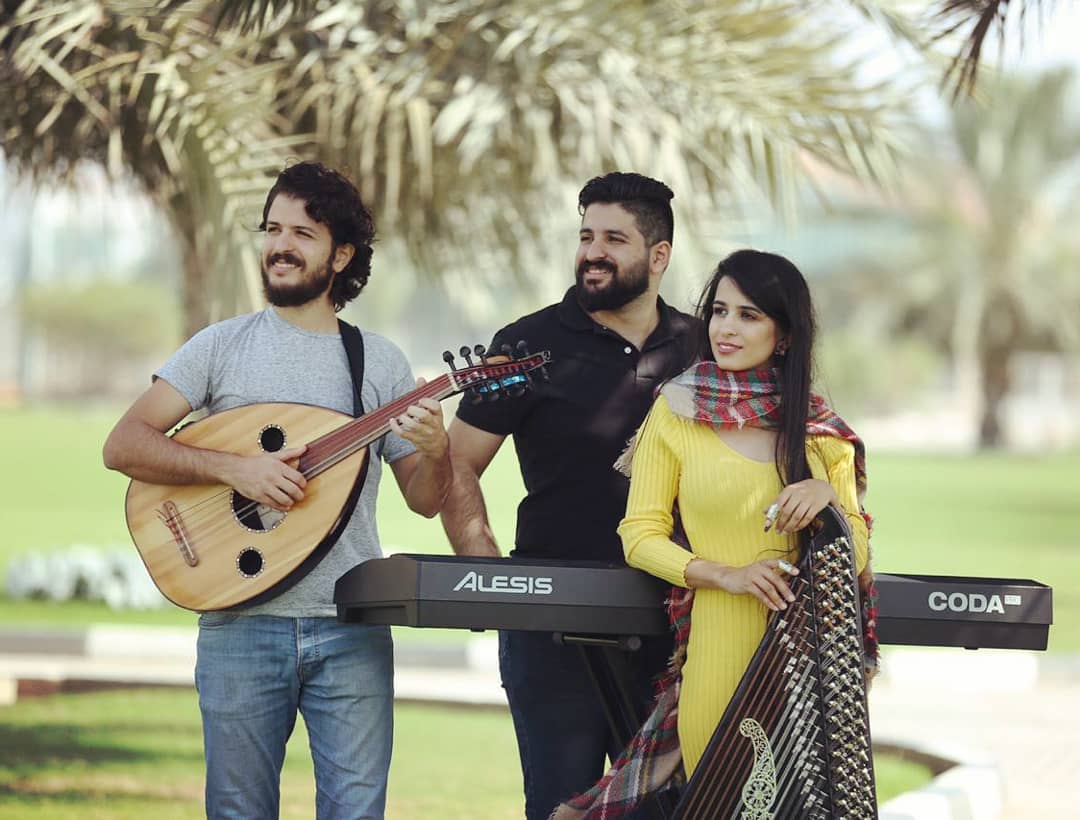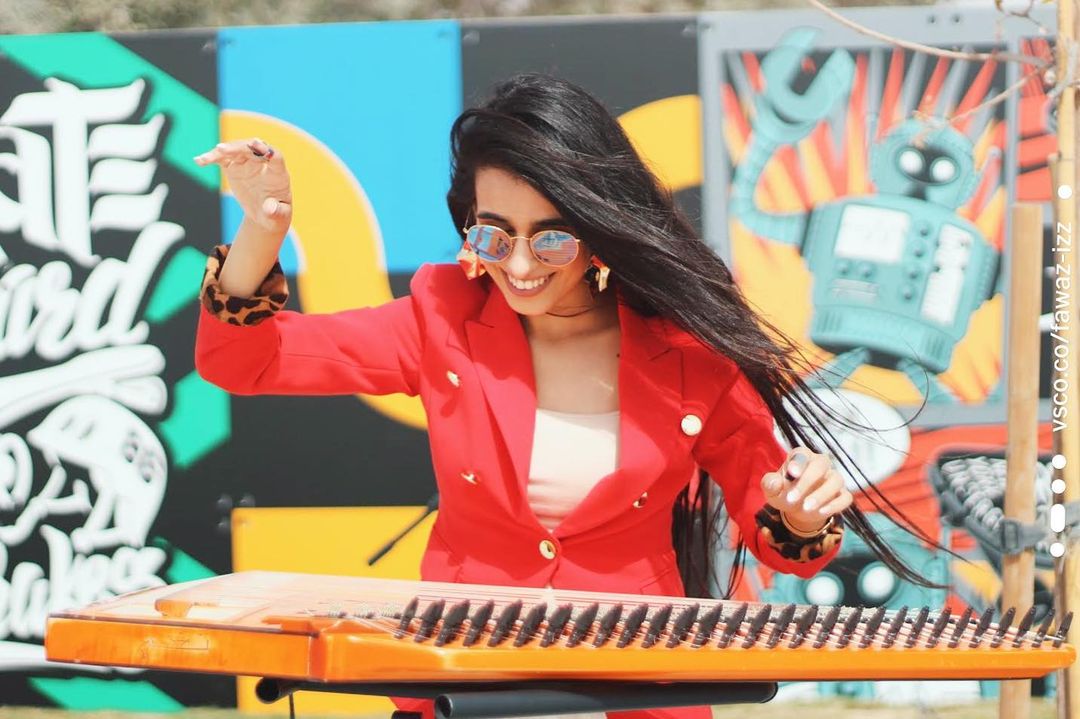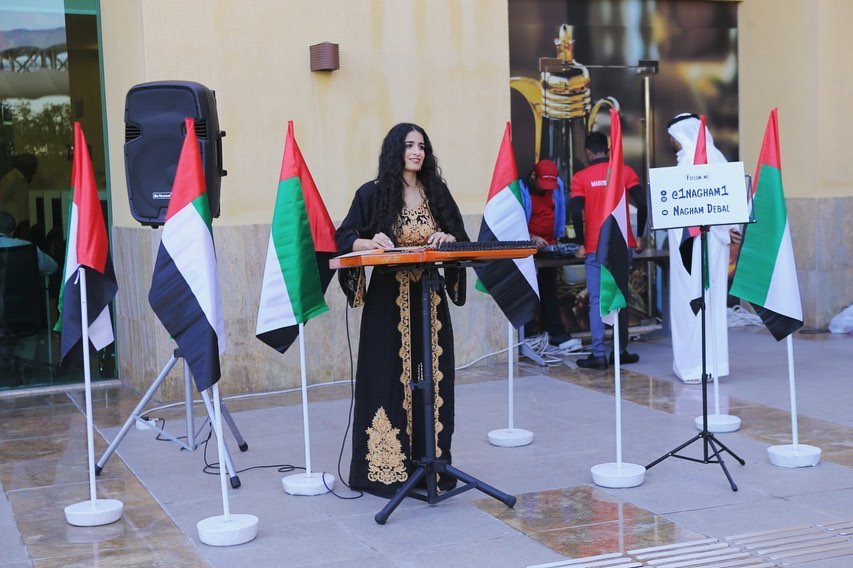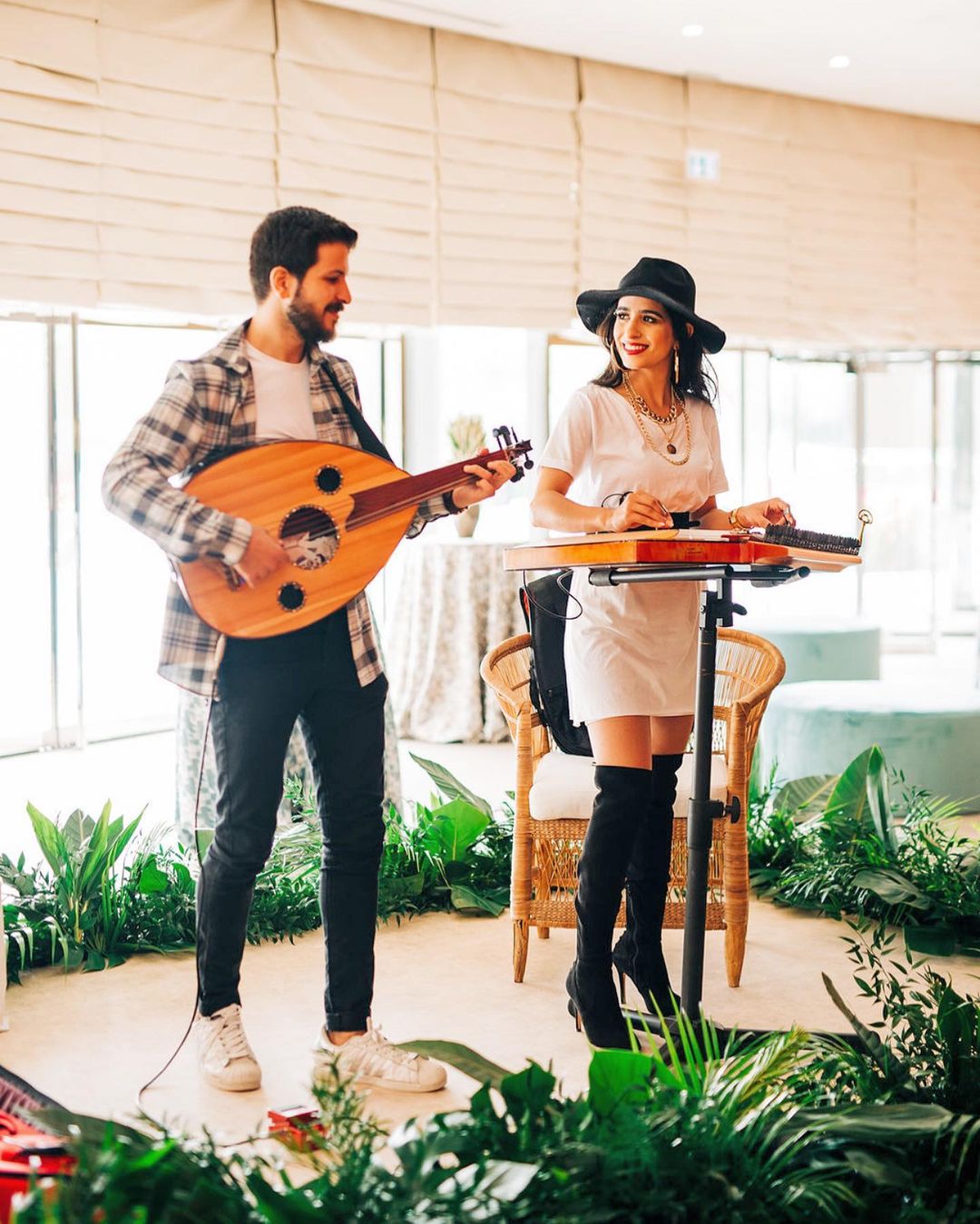While UAE is home to numerous musical talents, it is rare to come across millennials playing instruments that are not only tough to learn but rare to come by.
Dubai-raised Syrians Dr Basel Al Debal, 25, plays the oud and Nagham Al Debal, 26, plays qanun
Music flows in the veins of the Debal siblings – Basel and Nagham. Born to Syrian musician parents based in Dubai their home is a haven of melodies. Dad, Kamal Debal, a music teacher in a school, plays a range of instruments including the keyboard, guitar, oud, violin and the Darbuka drums. Mum Ramzya Akabani, also a music teacher, specialises in playing the accordion. ‘Growing up music surrounded our lives. My earliest childhood memories are of family picnics in parks where my father would play the oud and a crowd would gather to hear him,’ reminisces Basel, who learnt to play the oud from his dad at the age of nine.

His elder sister Nagham showed potential early on. At two years, she could sing the songs her parents were listening to and by the age of five she started playing the accordion, xylophone, flute and the violin. But it was not until she was nine that she first spotted the qanun and took an instant liking to it. ‘We were part of a children’s orchestra in Sharjah when I noticed a girl playing the qanun. I was intrigued by this unique musical instrument and felt a strong urge to learn to play it,’ she recalls.
Both Basel and Nagham trained with their father after school. Interestingly, although they could play a variety of musical instruments they chose to specialise in these ancient Middle Eastern instruments. ‘It was not a conscious decision but something that happened naturally. In school and college I was the only one playing the oud and this instilled in me a sense of pride,’ says Basel, who trained every day for two hours.
Derived from the Arabic word meaning ‘wood’ – the oud – holds an integral role in the Arab civilisation. The instrument is one of mankind’s oldest string instruments dating back to the Akkadian empire 2350 BC in ancient Mesopotamia. The qanun too is central to Arabic music. Known to trace its origins from the ancient Egyptian harp, its earliest mention is in the book Kitab al-Musiqa al-Kabir by the 10th century musician al-Farabi. Shaped like a trapezoid the qanun has around 76 strings and is usually played seated with it on the lap or on a table. ‘The musical instruments we play have today become part of our identity. In school and college I was known as Nagham qanun.’
Although they were excelling in musical competitions in school and participating in several public events both Nagham and Basel chose to not pursue a career in music. ‘Our parents were always clear that music should be our passion not profession. They wanted us to pursue alternate careers as they felt earning a living as professional musicians is challenging,’ says Basel. He completed his MBBS degree from the University of Sharjah in 2016 and is currently doing an internship in Rashid Hospital, Dubai. Nagham, meanwhile, studied architecture from the University of Ajman and graduated in 2015. She is today a self-employed architect and interior designer.
Leading this dual life – balancing their careers and musical interests – has not been easy for the duo. ‘There have been many dark days where I have had to make tough choices between studies and music. Before my MBBS exams there were times when I also had to perform at events. I would study for more than six to seven hours with barely any time left to rehearse before the programmes,’ says Basel. However, their music gigs gave them a financial edge as they could contribute to the family income and partly fund their own studies.
From government summits to weddings and shopping festivals Basel and Nagham have performed live at a string of venues. Nagham excels in playing traditional Arabic songs as well as modern mashups on her qanun. ‘From Fairuz’s Sa’alouni al Nas to Ed Sheeran’s Shape of You I like playing a mix of Arabic and English songs,’ says Nagham. In 2017 she composed and sang Ya Emmi, a song dedicated to mothers.

On his oud, Basel plays a mix of traditional and modern Arabic music. He is also influenced by various western music styles including jazz, rock and flamingo. Both of them have performed live at various locations during Dubai Shopping Festivals, Dubai Summer Surprises, National Day, at the World Government Summit Dubai 2016 as well as at weddings, university events and concerts. ‘When people stop looking at their phones and give us their undivided attention, that’s the biggest compliment,’ says Nagham. For her an unforgettable moment was when during an event His Highness Shaikh Mohammad Bin Rahid Al Maktoum, Prime Minister and Vice President of the UAE and Ruler of Dubai, stopped by to listen to her.
She plans to conduct online classes to train others to play the qanun one day. Basel, on the other hand, dreams of cutting an international album and is also debating his MD specialistion between neuroscience and emergency medicine.
